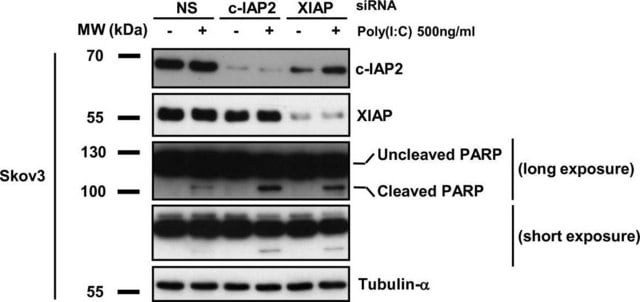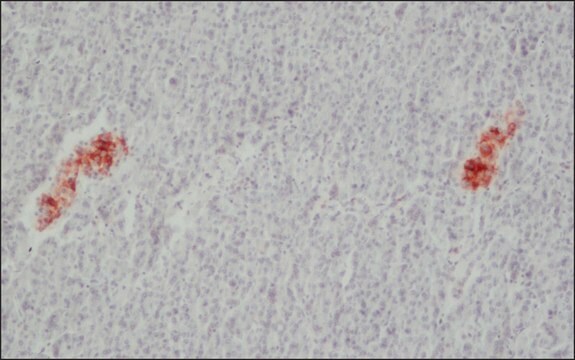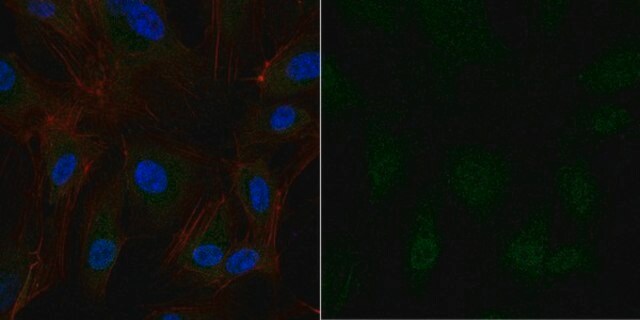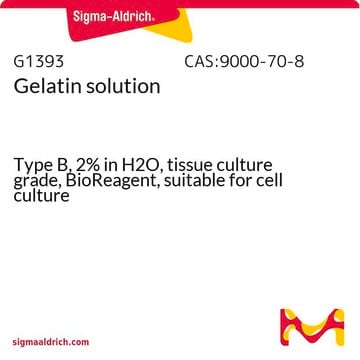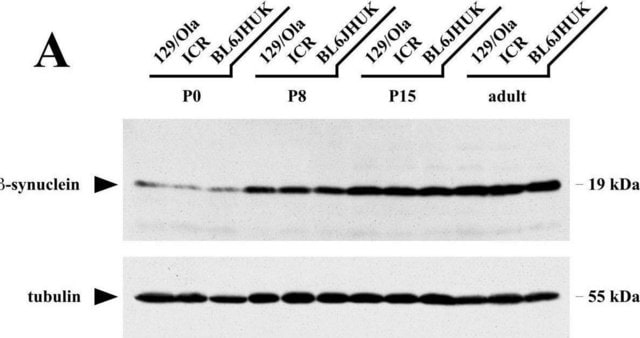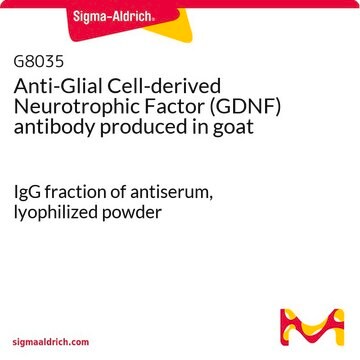G4896
Monoclonal Anti-Gelsolin antibody produced in mouse
clone GS-2C4, ascites fluid
Synonym(s):
Gelsolin Detection Antibody, Mouse Anti-Gelsolin
About This Item
ELISA (i)
IHC (f)
IHC (p)
WB
immunohistochemistry (frozen sections): suitable
indirect ELISA: suitable
microarray: suitable
western blot: 1:1,000 using human plasma
Recommended Products
biological source
mouse
Quality Level
conjugate
unconjugated
antibody form
ascites fluid
antibody product type
primary antibodies
clone
GS-2C4, monoclonal
contains
15 mM sodium azide
species reactivity
bovine, pig, human, rabbit
technique(s)
immunohistochemistry (formalin-fixed, paraffin-embedded sections): suitable using heat-induced antigen retrieval sections
immunohistochemistry (frozen sections): suitable
indirect ELISA: suitable
microarray: suitable
western blot: 1:1,000 using human plasma
isotype
IgG1
UniProt accession no.
shipped in
dry ice
storage temp.
−20°C
target post-translational modification
unmodified
Gene Information
human ... GSN(2934)
Related Categories
General description
Specificity
Immunogen
Application
Biochem/physiol Actions
Target description
Other Notes
SAB4200750 Anti-Gelsolin antibody, Mouse Monoclonal
clone GS-2C4, purified from hybridoma cell culture
Disclaimer
Not finding the right product?
Try our Product Selector Tool.
related product
Storage Class Code
10 - Combustible liquids
WGK
WGK 1
Flash Point(F)
Not applicable
Flash Point(C)
Not applicable
Regulatory Listings
Regulatory Listings are mainly provided for chemical products. Only limited information can be provided here for non-chemical products. No entry means none of the components are listed. It is the user’s obligation to ensure the safe and legal use of the product.
JAN Code
G4896-BULK:
G4896-VAR:
G4896-.5ML:
G4896-100UL:
G4896-.2ML:
Choose from one of the most recent versions:
Certificates of Analysis (COA)
Don't see the Right Version?
If you require a particular version, you can look up a specific certificate by the Lot or Batch number.
Already Own This Product?
Find documentation for the products that you have recently purchased in the Document Library.
Our team of scientists has experience in all areas of research including Life Science, Material Science, Chemical Synthesis, Chromatography, Analytical and many others.
Contact Technical Service